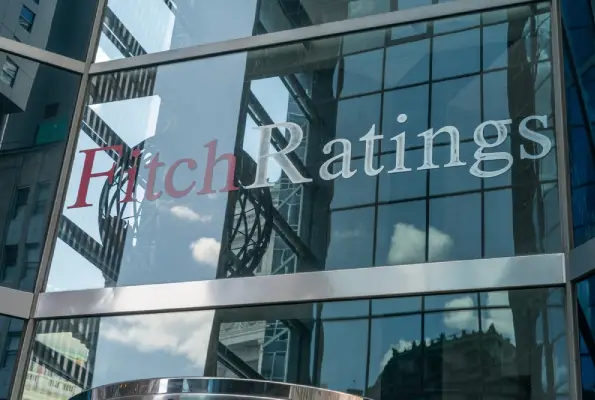The American credit rating giant Fitch has upheld the UAE’s “AA-” rank, citing the country’s strong foreign asset position and high GDP per capita as reasons for the stable outlook.
Abu Dhabi is one of the highest-rated sovereigns according to Fitch, and its sovereign net foreign assets, which made up 122% of the UAE GDP in 2023, have further improved its standing.
With surpluses in Dubai and Abu Dhabi, which just obtained an “AA” rating, and budget deficits in Ras Al Khaimah and Sharjah, Fitch predicts that the consolidated budget for the United Arab Emirates will remain in surplus in 2024 at 4.1% of GDP following 7.8% in 2023.
Fitch stated that while it will be largely steady in 2025 and 2026, “We anticipate consolidated UAE government debt at 24% of GDP at end-2024, far below the ‘AA’ category median of 49%.”
“The debt profiles of the individual emirates vary, but Sharjah stands out with a higher burden,” Fitch continued.
In 2023, Dubai paid back 29 billion UAE dirhams (USD 7.9 billion), or 1.5% of the country’s GDP, in market and private debt, and the amount of loans that Emirates NBD Bank PJSC made to the Dubai government decreased.
The country’s heavy reliance on hydrocarbon income, the substantial indebtedness of GREs, and the UAE’s poor governance metrics in comparison to rating peers, according to Fitch, counteract the country’s strengths.
Fitch stated that even with a moderate government debt-to-GDP ratio, the UAE’s economy is characterised by significant levels of leverage. The report stated, “We estimate total non-bank private external debt stands at 46% of GDP and overall contingent liabilities from GREs [government-related enterprises] of the emirates and the FG [federal government] at around 62% of UAE 2023 GDP.”
Additionally, according to Fitch, GDP growth would decelerate to 3.1% in 2024 and then rise to 4.9% in 2025, following 3.6% in 2023.
“Despite the easing of OPEC+ quotas in the second half of 2024, we predict non-oil growth of 4.3% and hydrocarbon GDP to decrease by 0.4% in 2024. Despite global headwinds, we predict that non-oil growth will drop to 3.4% in 2025 but remain relatively strong due to government and GRE investment, a thriving real estate market, rapid previous population growth, and GCC consumption. The increased OPEC+ production caps will cause the hydrocarbon sector to grow by 9.5% in 2025,” according to Fitch.
Geopolitical tensions between Iran, Israel, and the US pose a risk to regional security, particularly to Abu Dhabi’s hydrocarbon infrastructure and Dubai’s position as a hub for trade, tourism, and finance, according to Fitch.


